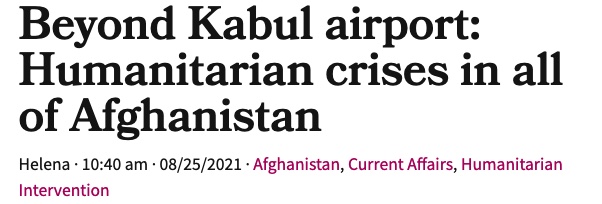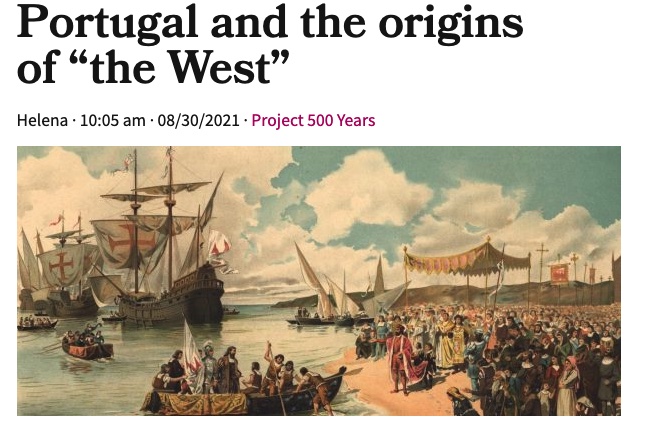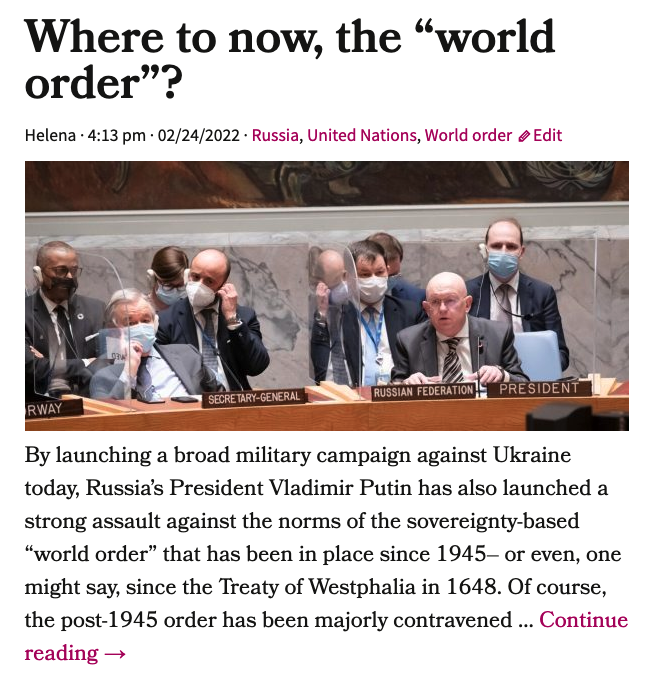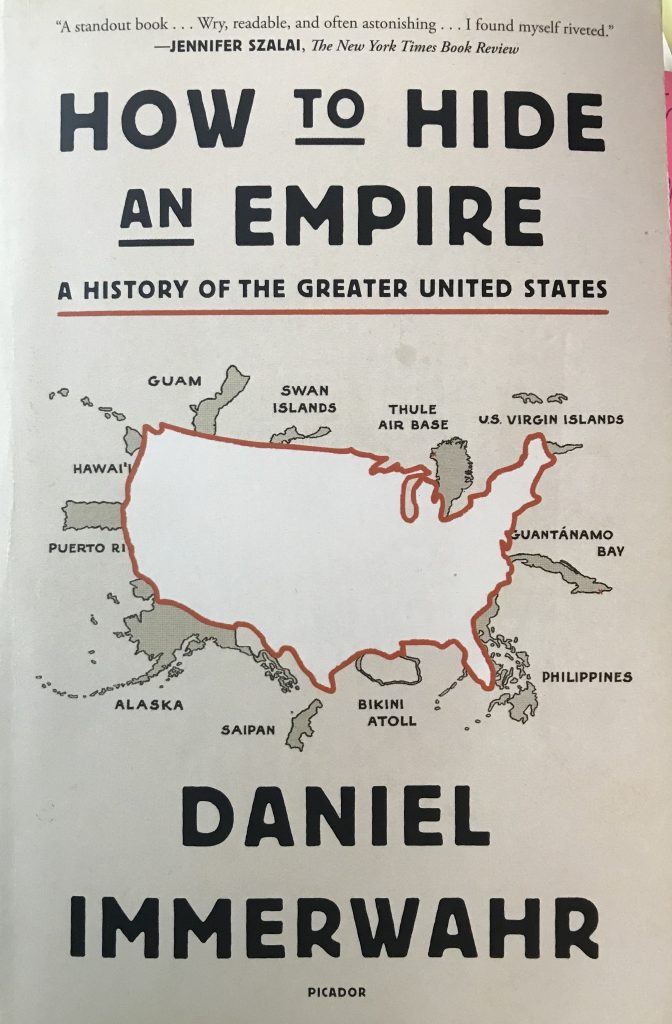At some point, I want to go back and take a gallop through my intellectual history going back to the 1970s. (Interested folks can see some some aspects of that at my Wikipedia page.) But here, I just want to pull together some of the more worthwhile of the pieces I’ve written over the past 18 months. This was a period in which (a) I was figuring out more and better how to regain my own voice as a writer/thinker/analyst after spending 12-plus years working mainly to amplify the voices of others, and (b) I was struck by a fairly evident sign of ageing in the form of a retina problem that started in early November 2021.
So here’s the best of what I produced over the past 18 months:
This was an opinion piece I wrote in late August 2021 to try to correct the the impressions that the Western corporate media were pedddling 24/7 to the effect that all “sane” Afghan people wanted to leave their country and that the best thing Westerners could do would be to help them leave…
Ever since the beginning of 2021, I’d been pursuing a writing project trying to understand the roots of Western imperialism by tracking its development one year at a time, in a daily blog post.
However, I had started that project only in 1520 CE, when I was capturing mainly the machinations of Spain’s empire-building. As I proceeded, it became ever clearer that Portugal had preceded Spain by many decades in its efforts to build an extractive, transoceanic commercial empire that reached far beyond Europe! So in July-August of 2021, I delved into the history of Portugal’s empire-building, which had started in 1415 CE.
I published that article in two places in late August 2021 (here and here.) It identified several key aspects of Portugal’s empire-building. These included the degree to this project was a continuation of the centuries-long “Reconquista” campaign that the Portuguese dukes had waged against Muslim rule of the part of Iberia that they claimed as theirs, and the degree to which its growth continued to be spurred by Islamophobia– or anyway, a desire to make an end-run around the domination of Muslim-dominated trade routs along the Silk Road and its maritime components…
Those Portuguese empire builders pioneered many of the techniques that the imperialists from other portions of the Western (Atlantic) coast of Europe would later use in building their own empires. I delved into some of these techniques in these three follow-on pieces:
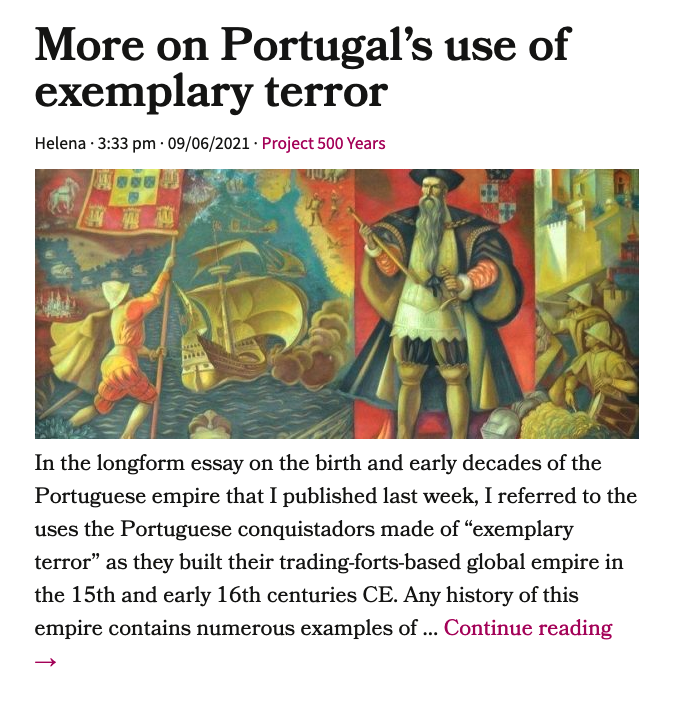
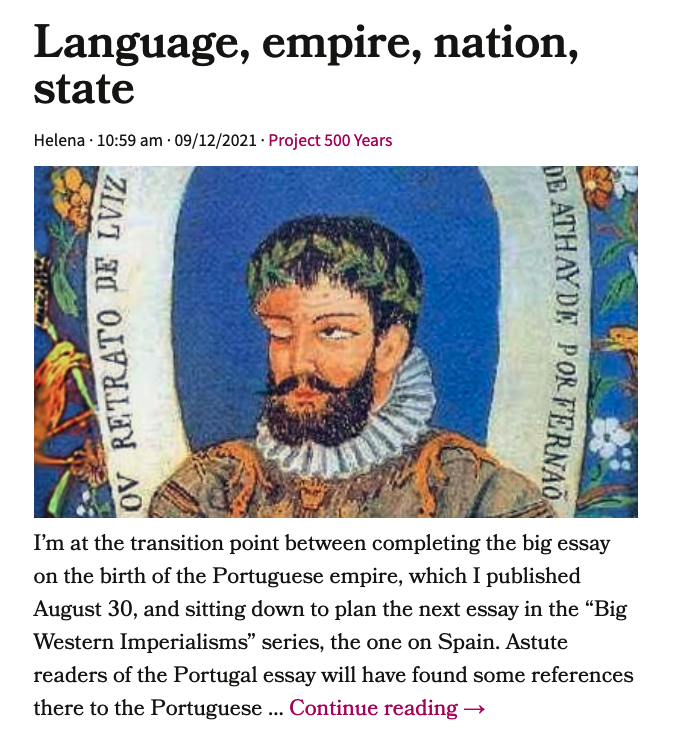
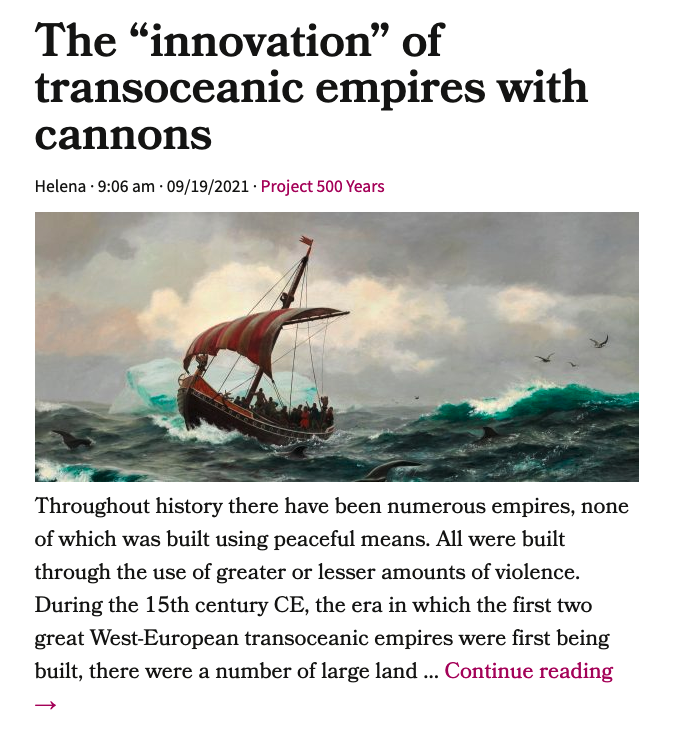
Click on any of those to access the full text. I’m pretty pleased with all those Portuguese empire essays…
In January of this year I developed a clear “leading”, as we Quakers say, to explore the involvement of earlier generations of Quakers in the Anglo settler-colonial project here in Turtle Island (aka, North America.) I wrote a total of four blog-posts on the subject:
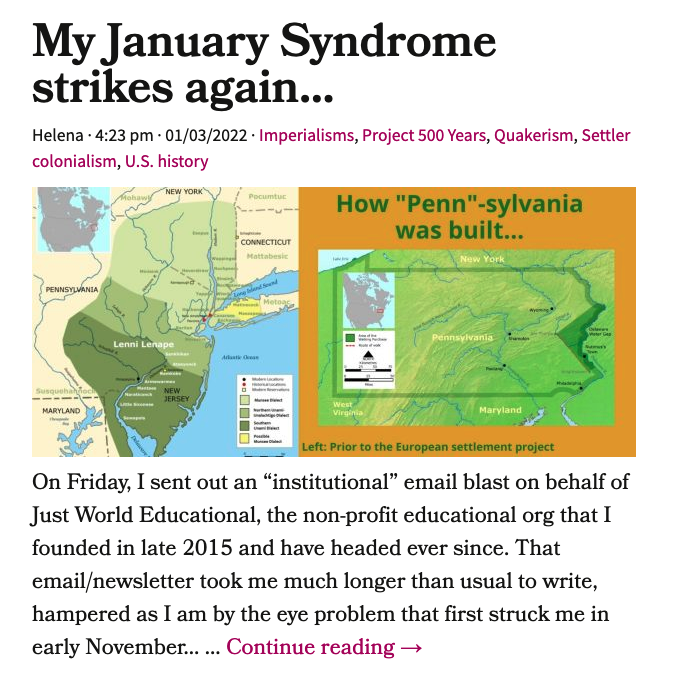
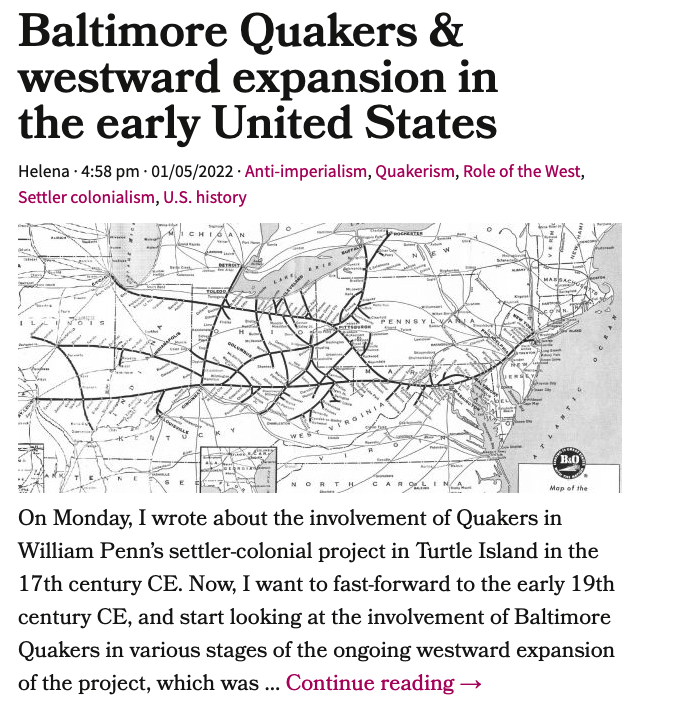
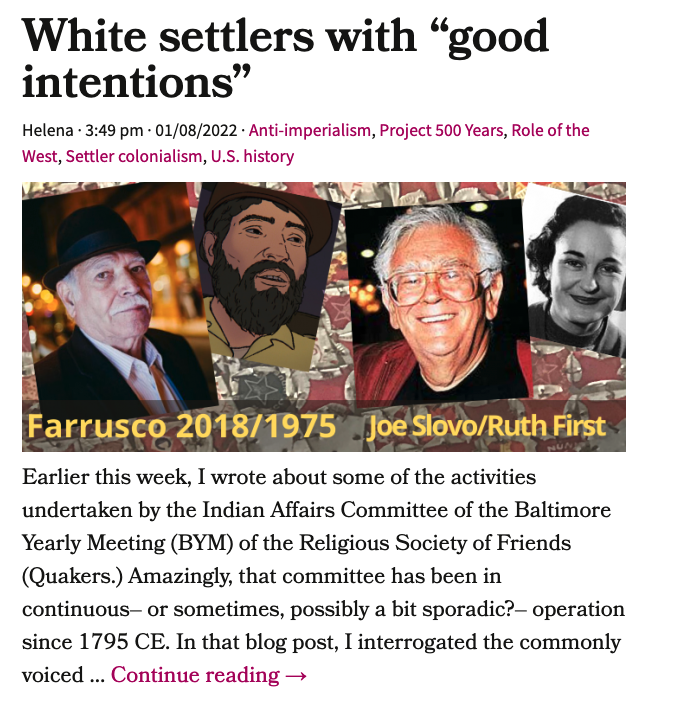
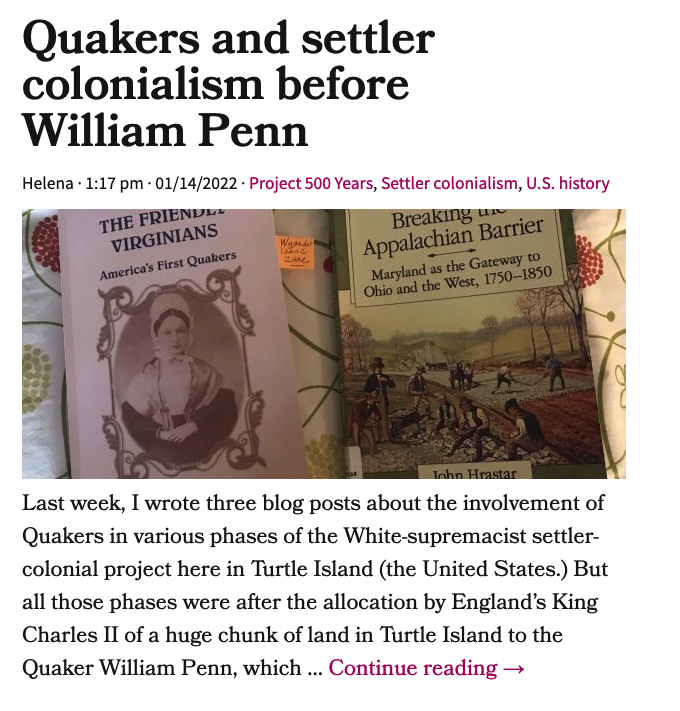
… Those pieces, I then repackaged, first into a presentation that I made for the Woodbrooke Quaker study center in England, and then into a little booklet. You can download a Word docx version of the booklet from Dropbox in two formats: either here, or here. The second of those is laid out to be printed up, two-sided, as a small folded pamphlet.
On February 24 of this year I wrote this piece (click on the image to access it.) It looked at Russia’s just-commencing incursion into Ukraine and asked these two big questions:
- How can this assault be ended in a way that minimizes the suffering, does not threaten a re-eruption of violence, and assures a decent working relationship going forward for all the peoples of that region?
- How can the world’s nations now craft a workable arrangement for governing world affairs that is much more robust than the deeply dented post-1945 order, and that can most effectively help the world’s peoples meet the existential challenges of nuclear war and climate change that our species now faces?
The piece concluded thus:
[I]n 2022, we are entering a new global era. It is one in which many of the arrogant, unilateralist practices that successive U.S. leaders had lazily fallen into in the decades since 1991– simply “because they could”– will need to be curbed, or reversed. There is no way the West can “win” the current conflict over Ukraine. It can minimize the harm suffered by Ukraine’s people(s); and this will best be accomplished through intensive diplomacy that builds on and reinforces some of the strongest of the principles on which the U.N. was founded. But make no mistake: reform of the U.N. itself and the institution of some very real forms of accountability in the conduct of international affairs should also be on the agenda.
This piece got pretty wide traction. And in my role as President of Just World Educational it catapulted me into organizing an eight-session webinar series on the broader implications of the Russia-Ukraine conflict. That series resulted, in mid-April, in the publication of a 32-page report, as well as the construction on our website of a richly multimedia info center on the conflict.
That project then segued almost directly into a follow-on project on The Urgency of Banning Nuclear Weapons.
Doing those projects left me almost no time for my own (non-corporate) writing. However, in July/August, in connection with our nuclear-ban project, I was able to write four pieces of my own on nuclear-weapons issues (click on any image to read the piece):
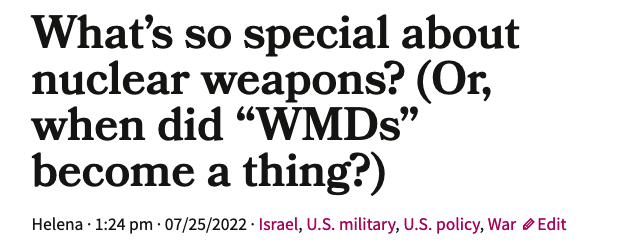

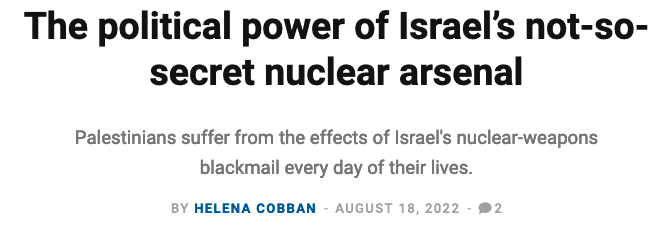
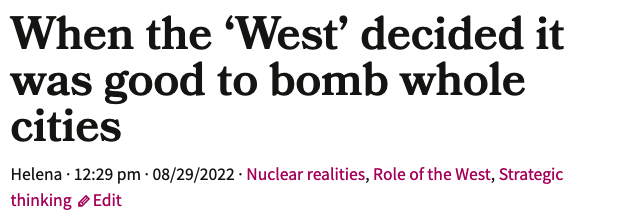
In the summer I started thinking about launching this Globalities project. I realized I needed to learn a lot more about the United States’ lengthy involvement in trans-Pacific affairs; and by chance, the place in Maine where we were spending a couple of weeks had some relevant books in its library. One was William Manchester’s 700-page biography of Douglas MacArthur, American Caesar: Douglas MacArthur, 1880-1964. In September, I finally got around to writing up my notes on what I’d learned from the book.
The first of these learnings was this:
MacArthur’s early life showed the extent to which America’s reach across the Pacific was simply a (maritime) continuation of the Anglo settler-colonial project in Turtle Island.
This resonated strongly with what I’d learned from another book recently, Daniel Immerwahr’s brilliant How to Hide an Empire: A History of the Greater United States...
The United States is unique among the world’s nations in that it is a settler-colonial entity that first expanded to become a large-scale continental power and then expanded further to build a transoceanic, maritime empire that paralleled and then to a great degree supplanted those of the earlier West-European maritime empires. (Australia reached the first of those goalposts, but not the second. Also, the Anglo settlers in Australia never took the big, anti-metropole secessionist step that their counterparts in North America took in 1776.)
I am definitely expecting to return to most or all of the above themes as the Globalities project progresses.
Nearly all of the articles referenced above were published first of all on the Just World News blog that I have maintained on and off since February 2003. Coming up for 20 years now! (The older, pre-2019 posts on the blog can be accessed here.) Why, you may ask, do I need another new platform now? My main reason is that I want to use this new platform in a more systematic and professional way than the way I’ve used Just World News over the years. Specifically, at Globalities, I’m planning to write and post a single strong, well-written essay on a regular weekly basis.
Meanwhile, I’ll continue to use Just World News as a more freewheeling scratchpad where I can write about things that take my fancy, or ephemera, or things that are more personal… or whatever I darn well please…

